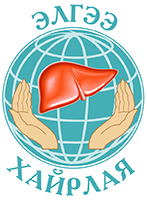Healthcare Worker Capacity Building
Building healthcare worker capacity is crucial. It ensures enough skilled healthcare professionals can deliver high-quality patient care, ultimately leading to improved health outcomes across communities by enabling effective diagnosis, treatment, and disease prevention strategies. With Mongolia’s frequently updated policies and protocols and the frequent changes to staff in rural clinics, healthcare worker capacity building is a vital and ongoing necessity.
Since 2005, FIRE has conducted training for rural healthcare providers in local facilities across 15 of Mongolia’s 21 provinces. Today, training is conducted in support of the World Health Organization (WHO) and the Mongolian Ministry of Health’s (MoH) priorities and policies. The Mongolian Ministry of Health approves the curriculum and methodology, and all participants are given continuing medical education (CME) credits for the training. Most training is conducted in conjunction with Hepatitis Free Mongolia field activities.
Quick Facts
- $3 million in medical supplies given across Mongolia
- 15 of 21 provinces and Ulaanbaatar supported
- 4,758 healthcare workers trained
In addition to training hepatitis coordinators, in conjunction with our mobile screening, we conduct capacity-building activities for healthcare workers led by specialists visiting Ulaanbaatar, the United States, and abroad. Local physicians shadow specialists during the screening activities and lead additional classroom sessions. Specialists leading the training include oncologists, hepatologists, ultrasound specialists, and fibro-scan specialists. The Mongolian Ministry of Health approves the curriculum and methodology, and all participants are given continuing medical education (CME) credits for the training.
- Laboratory Capacity Building is done before our first screening with laboratory specialists from the National Center for Communicable Diseases (NCCD).
- Train trainers: To encourage sustainability and empower the provincial Health Department, we train critical specialists at the Provincial Hospital who can train clinic healthcare workers throughout the province. Training covers HBV, HCV, HDV guidelines, Ministerial Orders, and best practices for preventing, diagnosing, and treating hepatitis and liver diseases.
- Classroom training is conducted in every clinic with as many healthcare workers in the province as possible. Topics cover HBV, HCV, and HDV guidelines, Ministerial Orders, and best practices for prevention, diagnostics, and treatment.
- Bedside/shadow training: Healthcare workers are trained through hands-on bedside or “shadow” training with Mongolian and international specialists. Local healthcare workers follow visiting specialists as they conduct physical examinations and counsel participants, providing real-time opportunities to practice what they have learned from the classroom training.
- Training Specialists in Ulaanbaatar: In addition to supporting rural healthcare workers, we conduct lectures and clinical training in Ulaanbaatar with the top hepatologists, gastroenterologists, and oncologists in Mongolia.
- Health Safety and Medical Waste Management: Training materials and supplies include instructional posters, pamphlets, and necessary medical waste management supplies. Please visit our Infection, Control, and Prevention page for more information.
As Mongolia has developed and modernized, the internet has also grown. Even the most remote areas can now access the internet. To further develop FIRE’s health care worker capacity building programs, we are working with partner organizations to create online training courses as well as interactive live training conducted via the internet by local specialists in Ulaanbaatar and international specialists. Additionally, we aim to establish a physician’s mentor program to mentor Mongolian physicians in Ulaanbaatar with international physicians and Mongolian physicians in the countryside with physicians based in Ulaanbaatar. Sharing these new training models over the internet will quickly and dramatically increase the knowledge and abilities of health care workers in Mongolia, improving the quality of care across Mongolia and the overall health of all Mongolians.


















